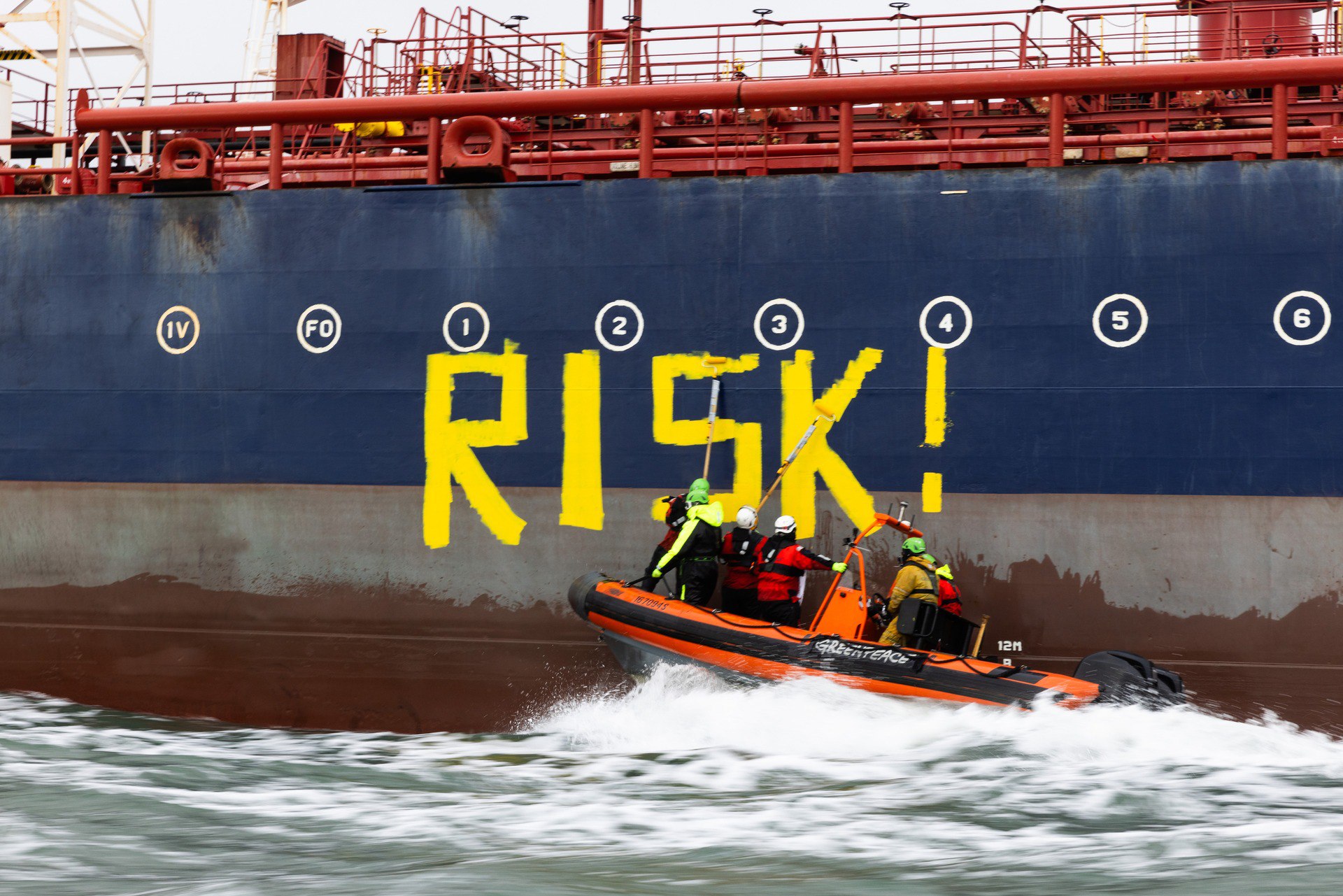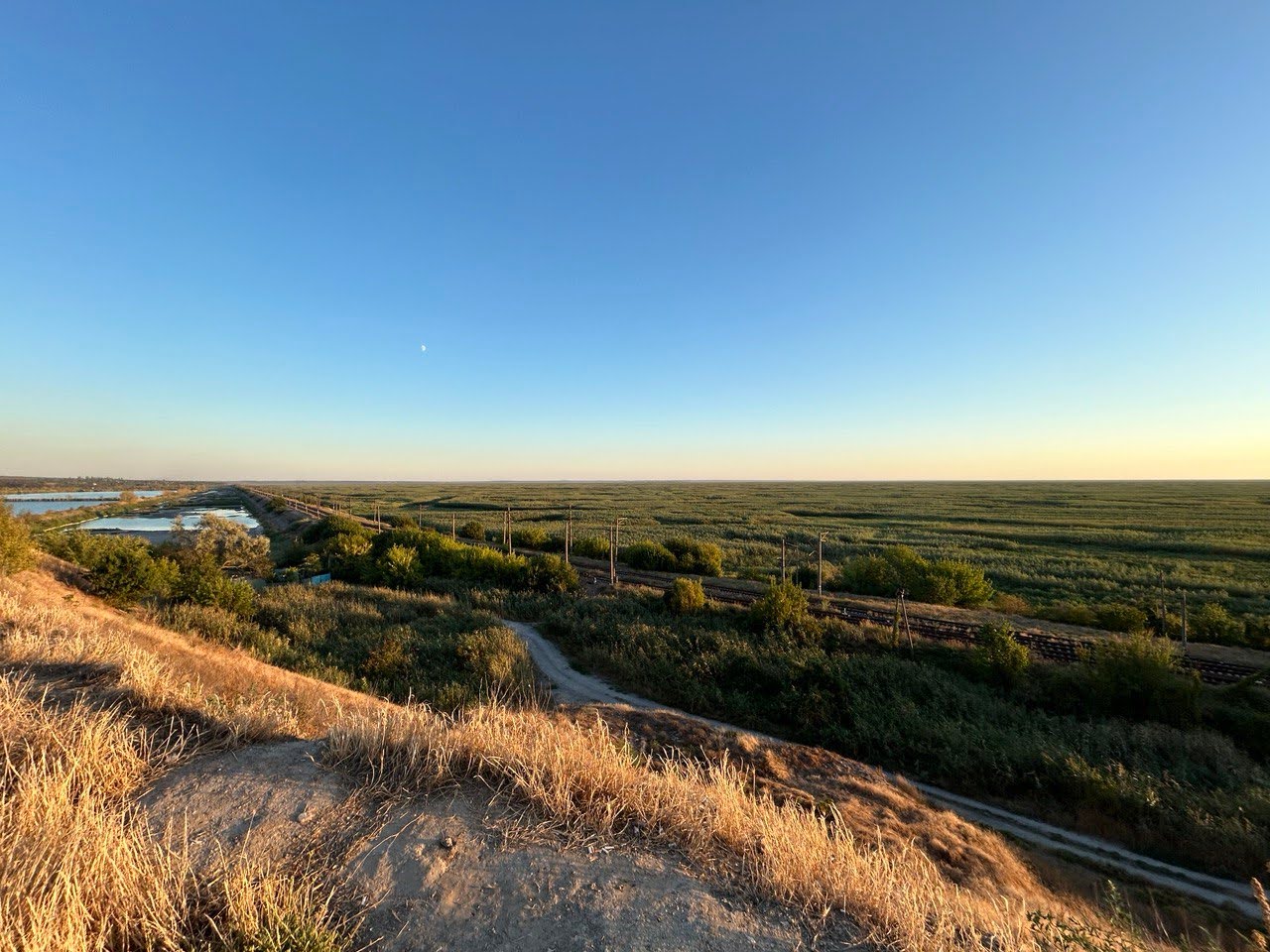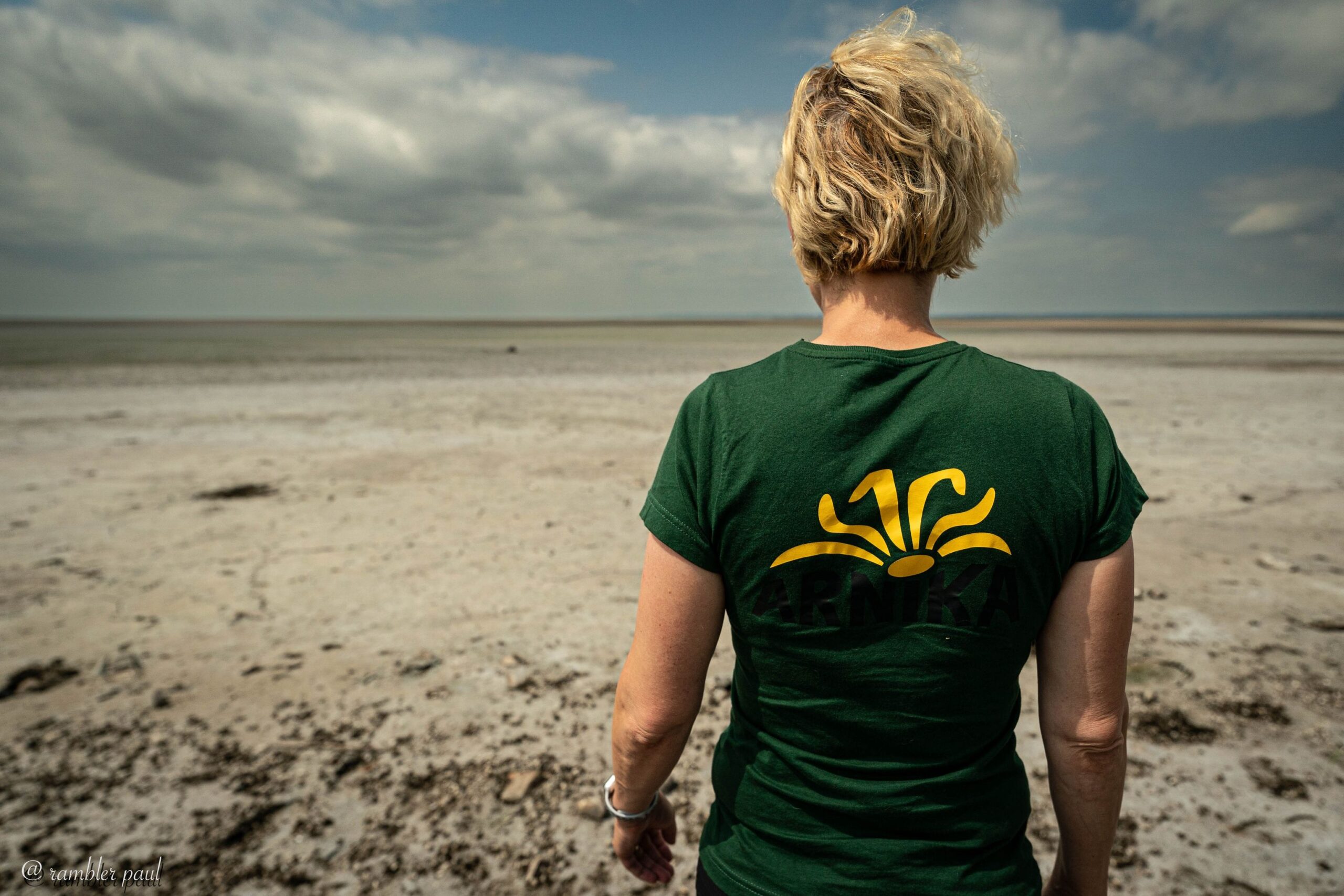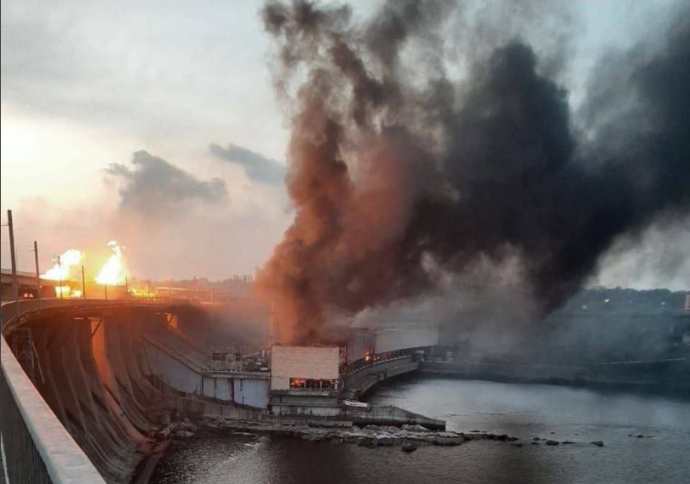A conversation with Vitaly Servetnik
Interviewed by Alexei Ovchinnikov
Translated by Jennifer Castner
The war and the increasingly authoritarian regimes that preceded it have an understandably negative impact on many environmental groups and organizations. In Russia and Belarus, environmental activists are persecuted, and environmental organizations can no longer continue their work.
UWEC Work Group has already written about the Belarusian environmental organization Ecodom. It was liquidated by the government and its representatives were subjected to political persecution and forced to leave the country. Ecodom was recently recognized in Belarus as an “extremist formation.”
In Russia, the situation also remains tense. Environmental activists are being persecuted, among other things, for their anti-war stance. One high-profile and resonant case was Arshak Makichyan, a well-known Russian climate activist who recently had his sole citizenship revoked.
Editor Aleksei Ovchinnikov spoke with Vitaly Servetnik, Co-Chair of the Russian Social-Ecological Union, about how the full-scale invasion of Ukraine has affected the work of environmental activists in Russia.
Tell us a little bit about yourself and your organization.
I am co-chair of the Russian Social-Ecological Union (RSEU, part of the international Friends of the Earth network) and coordinator of the RSEU program to support environmental activists. We created this program several years ago, realizing that the pressure on environmental activists in Russia is increasing.
For the past eight years, I have been combining the theme of environmental activists and human rights activities. In other words, I work with what in the UN’s terminology can be called “environmental human rights defenders.”
Today, our main work is monitoring pressures on environmental activists in Russia. We try to record public and non-public cases of persecution in order to highlight the regularity of this phenomenon.
Each month we publish updates on persecuted environmental activists in a special bulletin. Since the extent of the pressure is constantly increasing, we created an Ecological Crisis Group within the framework of a collaboration between the RSEU and the “We Live Here” public environmental movement. The idea came back in 2020 following protests against the construction of a landfill near Shies station in Arkhangelsk region. Our goal is to monitor and provide legal support to the grassroots environmental activists who continue to protest in Russia’s socio-political arena.
We noticed that for institutionalized civil society, authoritarian pressure manifested through the laws “On foreign agents” being used to pressure public organizations and experts. For grassroots activists, we had to create a new method to collect and analyze data on their persecution. Information was not always public, and “media coverage” could vary greatly.
We try to collect and publicize information about the persecution of individual grassroots environmental activists, as long as there are no serious consequences for the activists themselves. At the same time, it is important for us to not only talk about the persecution itself, but also about the problems eco-activists try to solve and the people who participate. We describe specific ways to help a persecuted activist or group – for example, raise money for a lawyer, make inquiries at pre-trial detention centers, and help solve the environmental issue that prompted the protests for which activists are being persecuted.
Can it be said that your program collects data and provides legal assistance to grassroots activists when possible?
Yes, we mainly do monitoring. This work consistently demonstrates that environmental activists in Russia are persecuted regularly and systematically.
Moreover, sharing information about these persecutions has a direct effect. A year and a half after we began collecting and analyzing these cases, Russia’s Public Chamber convened a separate meeting devoted to the issue of pressure on environmental activists. As a result, the Coordinating Council for Ecological Welfare was created within the same Public Chamber. The Council will consider, among other things, the problem of pressure on environmental activists.
We can see that this institution was created in order to “blow off steam” so that the environmental agenda would not be politicized, as has already happened in the case of the Shies landfill protests I mentioned earlier. In that instance, the activists’ agenda resonated so strongly that their advocacy even led to replacing governors in two regions – Arkhangelsk and Komi. So far, our monitoring has not pointed to any decrease in the persecution of environmental activists since the creation of this Coordinating Council.
What has changed in terms of the persecution of environmental activists in Russia since the full-scale invasion of Ukraine?
Many environmental activists took part in anti-war actions or spoke out against the war. And, of course, they were persecuted by the authorities.
After the war began, it was important for us to understand whether the intensity of persecution for participation in environmental campaigns increased, or whether it was associated with other political activities, in particular, with the anti-war position.
We decided to compile a separate list of environmental activists opposing the war and analyze the nature of their persecution. We noted that during the first six months of the large-scale invasion, over 40 activists were subjected to various forms of pressure for anti-war statements and actions – from detentions and beatings to threatening phone calls.
After the introduction of legislation prohibiting calling the war a war, the situation regarding environmental activists who spoke out against the invasion became more complicated. Some activists and organizations were forced to delete public statements, others did not and faced persecution.
For example, in Komi the Committee for Saving Pechora issued a public statement against the war, resulting in its leader being fined. Some activists who protested were fined or faced several days of arrest.
We are tracking five criminal cases against environmental defenders and one sentence that has entered into force that was issued under the law regarding assaults on law enforcement. However, the most likely reason was the activist’s political position and actions – he strolled down the street with his son wearing clothes in the colors of the Ukrainian flag.
This case once again demonstrated a long-standing practice in the Russian penitentiary system to use legal articles such as assault on a police officer for politically motivated criminal prosecution.
Has the intensity of environmental protests in Russia decreased or increased since the war began?
On the one hand, we can attribute a slight decrease in the number of environmental protests in Russia to the fact that protests shifted to anti-war actions. On the other hand, we see that the authorities’ reaction is getting tougher and we are now seeing an increase in the intensity of criminal prosecution of environmental activists.
Earlier cases against environmental activists arose once every couple of months and then dragged on for years. Today, every week we publish a report on criminal and administrative prosecutions, and the cases happen much faster. There are two or three hearings every week.
This summer we noticed more intense persecution of employees of protected areas. Often, pressure is also exerted using counterfeit articles. It can be assumed that the pressure is associated with a desire to end that protected area’s conservation status.
However, in my opinion, we are not seeing something new, but rather a trend of weakening environmental law in Russia and the persecution of environmental activists. This trend has been around for more than a year now. Environmental legislation has been weakening since 2000. For example, one of Vladimir Putin’s first decrees after coming to power was the abolition of the Committee on Ecology, a state institution for environmental protection. And there have always been “reasons” why it was necessary to abandon this or that law. Today, sanctions have become another “reason.”
So for us, this is a trend that has existed for more than a year. And it can be linked to the increasing difficulty of conducting environmental protection activities in Russia. Explaining their actions by the need to support the economy, state, and business representatives can now use natural resources even more freely, including in PAs.
The political processes occurring today in Russia are also leading to a weakening of the legal framework. Both siloviki and the courts are beginning to feel freer to persecute activists. This may have an even more negative impact on the intensity of protest activity. However, in my opinion, environmental protests will not go anywhere because they directly relate to human life, health, and the right to a healthy environment.
Can we talk about the mass repressions of environmental activists and organizations in Russia? Is it comparable to the events of 2020-2021 in Belarus, when environmental organizations were liquidated, and many activists received administrative and criminal penalties and were forced to leave the country?
Despite the extremely unfavorable situation, I think that it is too soon to talk about the total repression of environmental activists in Russia. I agree with the opinion that while there is a totalitarian regime in Belarus, the Russian regime is authoritarian in nature. Persecution and pressure here are largely demonstrative. Several cases have been selected and brought to their brutal end, for example the recent cancellation of climate activist Arshak Makichyan’s citizenship.
In Russia, the regime follows a demonstratively intimidating model, where the most visible and brightest figures are persecuted. However, most other activists are not detained immediately, but face hints and intimidation, and they are either asked to stop their protest activities or pushed to leave the country.
The situation strongly depends on the region and on the actions and positions of regional authorities. In some places we observe more intense persecution, in others the authorities pressure only the most active members of society. However, we cannot talk about mass repressions in Russia that are comparable to the situation in Belarus.
It would also be wrong to say that there is no legal way to protect environmental activists in Russia. The situation is unfavorable, but mechanisms remain. There are examples of activists managing to defend themselves and their rights. One even won a case centering on their persecution. Consequently, our slogan in recent years has been: “Resistance is not useless.”
Can it be said that the entire environmental movement in Russia shares an anti-war position?
No, after all, these are people with different political and ideological views, united by the desire to protect a healthy environment. Moreover, this disconnectedness manifested itself not only at the start of the war, but was noticeable earlier. For example, during the Covid-19 pandemic, we saw how people with different positions regarding vaccination – both those who spoke “for” and “against” it – equally actively participated in environmental actions.
Situations such as the war or Covid-19 can lead to grassroots groups splitting – expressing different positions and perhaps even ending a collaboration due to opposing views and adherence to opposing ideas. So it would be wrong to equate environmental activism with an anti-war position, and this is supported in our monitoring data.
Over the past year, Russia has dealt with active emigration. Many left in protest against the war. The second wave of migration began after the announcement of military mobilization. Is there a trend towards environmental activists also leaving the country?
To my knowledge, grassroots environmental activists rarely leave unless there is a direct threat of persecution. This is largely due to the fact that if they leave the territories they are protecting, they will lose their ability to influence the situation. In other words, they will lose their connection to the focus of their environmental activism.
Environmental advocates are strongly attached to the place, the environment they protect. You can try to defend political rights remotely, but it is unlikely that you will be able to defend your forest from another country. It is no coincidence that environmental activists are also called “protectors of territories.”
We try to stay in touch with anyone who, for one reason or another, had to leave. Such people want to be useful in Russian civil and environmental society. First of all, they can afford to say what those who remain in Russia cannot afford to say. And that is of course very important.
What are the main challenges facing the Russian environmental activist community since the start of the war?
As I said, today we see a gap in the environmental community between those who left and those who stayed. The former can afford to take more uncompromising positions. The latter have the advantage of working in the field and they have more specific data, but they are forced to interact with the authorities and obey the law. Establishing interaction between these two groups is a big challenge for the Russian environmental community.
Ideally, those who stay “on the ground” may be able to convey information through those who are safe and can speak with impunity. But the main thing that is important today is to consolidate the work of environmental activists, to find ways to support both those who left and those who remain in Russia. For the latter group, this support can be fundamentally significant, since it is they who are directly involved in solving environmental problems in Russia.
Remember, resistance is not useless.
Main image credit: semnasem.org








Comments on “Resistance is not useless: How Russian environmental activism persists in wartime”